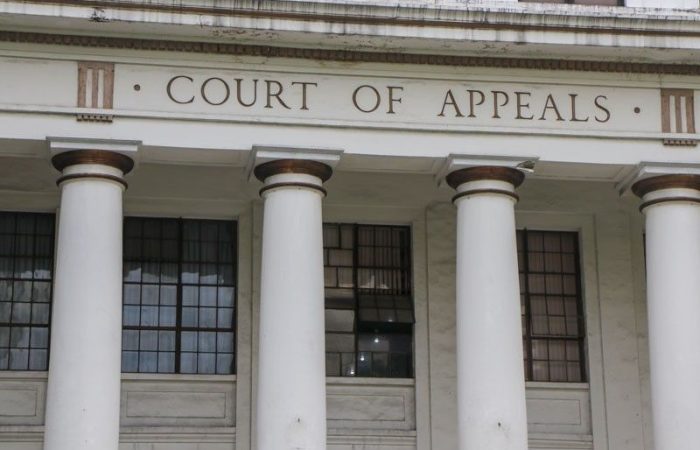By: Audrey Henderson
Introduction
People make comments every day, but why are some comments allowed and other comments considered defamatory? Doesn’t the First Amendment protect all the comments? The Virginia Supreme court has defined defamation as words or content that create a substantial danger to an individual’s reputation or good standing. Gazette, Inc. v. Harris, 229 Va. 1, 15 (1985). Additionally, words that contain and accusation or “an imputation necessarily harmful to reputation” may also be considered defamation. Id. at 23. This includes both slander (verbal) and libel (written). To determine if the content is defamatory, you have to evaluate what was said and who was the subject matter.
What Was Said and is it Protected by the First Amendment Freedom of Speech?
Generally, speech is protected by the First Amendment. When the Constitution was created, the founding fathers wanted to protect against the British sedition and licensing restrictions of the press, where individuals were not allowed to criticize the government at all. Chemerinsky, Erwin. Constitutional Law: Principles and Policies. 4th ed. New York: Wolters Kluwer Law & Business, 2011. 950-969. The Constitution was drafted to promote four fundamental ideas: self-governance, truth, societal tolerance, and individual autonomy/self-expression. Massey, Calvin R. American Constitutional Law: Powers and Liberties. 4th ed. New York: Wolters Kluwer Law & Business/Aspen, 2013. 849-853. The Supreme Court explained that the idea of free speech is to create a free marketplace for the exchange of ideas. Free speech encourages public debate and ideas in the hope that the truth will eventually rise to the top. New York Times Co. v. Sullivan, 376 U.S. 254, 266 (1964).
While the First Amendment protections are critical to our American society, they also make it very difficult to force people to remove libelous content unless if falls into one of the unprotected categories created by the Supreme Court. These unprotected categories include incitement of immediate crimes, true threats, fighting words, obscenity, and child pornography. See Brandenburg v. Ohio, 395 U.S. 444 (1969) (incitement of immediate crime); Virginia v. Black, 538 U.S. 343 (2003) (true threats); Chaplinsky v. New Hampshire, 315 U.S. 568 (1942) (fighting words); Miller v. California, 413 U.S. 15 (1973) (unprotected obscenity); New York v. Ferber, 458 U.S. 747 (1982) (child pornography). Additionally, other categories of speech may receive protection under the First Amendment depending on the situation. These include commercial speech and torts based on speech such as defamation and intentional infliction of emotional distress. See Cent. Hudson Gas & Elec. Corp. v. Public Serv. Comm’n, 447 U.S. 557 (1980) (commercial advertising speech); New York Times Co. v. Sullivan, 376 U.S. 254 (1964) (defamation of public figures); Gertz v. Robert Welch, Inc., 418 U.S. 323 (1974) (defamation of private figures); Hustler v. Falwell, 485 U.S. 46 (1988) (intentional infliction of emotional distress of public figures); Snyder v. Phelps, 562 U.S. 443 (2011) (intentional infliction of emotional distress of private figures).
Therefore, an angry husband, wife, girlfriend, boyfriend, or anyone else can post mean-spirited content online – especially, if it’s true (more on this below). The reason may not be fair, but the First Amendment allows for the freedom of expression through speech, so generally, even hate speech, offensive speech, and opinions will be protected under the First Amendment. See Virginia v. Black, 538 U.S. 343 (2003) (hate Speech); Cohen v. California, 403 U.S. 15 (1971) (offensive speech).
Who was the Communication About — Public Individual vs. Private Individual?
A public figure is a person who plays an influential role in society and has ready access to the mass media. They are usually people who voluntarily thrust themselves into the light of public questioning, and by reason of their fame, shape events in areas of concern to society at large. See Curtis Publishing Co. v. Butts, 388 U.S. 130, 164 (1967). Examples include politicians, celebrities, and public officials. If a person does not fit into the category of a public figure, then they are considered a private figure. In other words, most of us fall into the private figure category.
How Do I Know if the Posting is Defamatory or Libelous?
A statement is defamatory if it tends to harm the reputation of another in a way that lowers his/her good standing within the community, and thus deterring others from associating with that person. Bell v. Nat’l Republican Cong. Comm., 187 F. Supp. 2d 605, 615 (S.D. W. Va. 2002). Statements that are merely offensive unpleasant are not defamatory. Chaves v. Johnson, 230 Va. 112, 119 (1985). It will be up to the Court, not the jury, to determine whether an alleged defamatory statement is a mere opinion or one of fact. Id. Under Virginia common law, a private figure filing a claim of action for defamation must first show the defendant published a false factual statement of or concerning plaintiff or the plaintiff’s reputation. Gazette, Inc. v. Harris, 229 Va. 1, 37 (1985). Furthermore, claims of action for private individuals to recover only compensatory damages must prove, by a preponderance of the evidence “that the publication was false, and that the defendant either knew it to be false, or believing it to be true, lacked reasonable grounds for such belief, or acted negligently in failing to ascertain the facts on which the publication was based.” Id. at 15.
In other words, for a private figure plaintiff (the standard that likely applies to the majority of us), suing for statements made on private matters, then the plaintiff need only prove, by a preponderance of the evidence that the defendant acted negligently in his/her defamatory statement(s) for both punitive and compensatory damages. Gazette, Inc. v. Harris, 229 Va. 1, 15 (1985). “In Virginia, the elements of libel are (1) publication of (2) an actionable statement with (3) the requisite intent.” Jordan v. Kollman, 269 Va. 569, 575 (2005). The plaintiff may recover if he proves that “the publication was false, and that the defendant knew it to be false, or believing it to be true, lacked reasonable grounds for such belief, or acted negligently in failing to ascertain the facts on which the publication was based.” Gazette, 229 Va. 1, 15 (1985).
For a public figure (celebrity, politician, etc.), the statements in question must meet the “actual malice” standard described in Times v. Sullivan. To be awarded compensatory and/or punitive damages based on a defamation claim, the public figure plaintiff must prove by clear and convincing evidence that the defendant made knowingly false statements or had a reckless disregard for the truth. If proven, the defendant will be liable for defamatory speech. It does not matter if the defamatory statements is a matter of public concern or private concern.
For a private figure plaintiff who is suing for statements made on public matters, the previously discussed standard of “actual malice,” but only for punitive damages. The plaintiff must prove, by clear and convincing evidence, that the defendant made knowingly false statements or had a reckless disregard for the truth. But, if the private figure plaintiff is only seeking compensatory damages, there is a lower burden for the plaintiff to prove. The plaintiff must prove, by a preponderance of the evidence, that the defendant was merely negligent in failing to discover the misstatements.
If you determine that the content is defamatory, stay tuned for my next post with tips to help you remove the defamatory content from the web.



